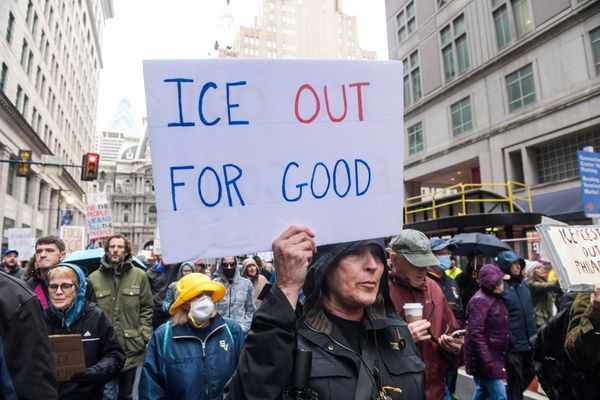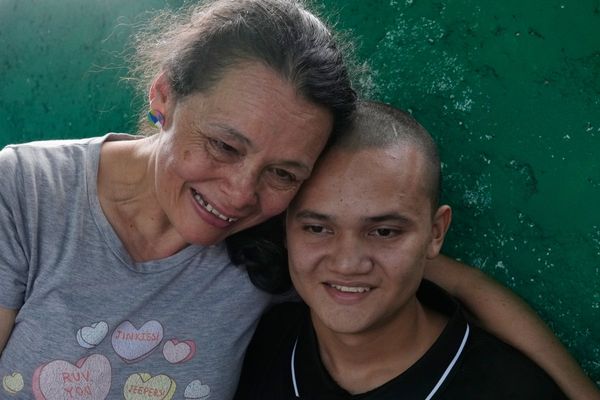SAN JOSE, Calif. – Santa Clara County Superior Court has decided to allow its emergency zero-dollar bail order to expire at the end of the month, marking a quiet end to a polarizing jail-release policy enacted in the throes of the COVID-19 pandemic.
The policy, which made thousands of people accused of low-level crimes eligible for release to relieve jail crowding as the coronavirus spread unchecked, was a lightning rod for fiercely opposing perspectives.
Critics saw it as a dangerous get-out-of-jail free card exploited by repeat offenders, while supporters saw an eye-opening glimpse into a criminal-justice system that didn’t default to bail and pretrial detention practices long tainted by harsh racial and socioeconomic inequities.
Those affected by the zero-dollar bail order are now more likely to see at least some jail time before they can get in front of a judge and argue for release.
The state judiciary first instituted the emergency bail order shortly after widespread recognition of the pandemic in March 2020, and rescinded it a few months later, leaving it to individual counties to decide on whether to continue it. In essence, it set bail at $0 for an array of mostly misdemeanor offenses and some nonviolent felony offenses, where bail would be less than $25,000, with the express purpose of preventing them from getting booked into jail and worsening the in-custody COVID-19 risk.
The Santa Clara court has extended it periodically about a half-dozen times since then.
“We’re in a different phase now than before there were vaccines and the treatments we have now,” Assistant District Attorney James Gibbons-Shapiro said. “It’s the right time for judges to be thinking about whether these emergency orders are facing the same emergency when they were first put into place.”
The court and county officials have endured intense political pressure led by San Jose Mayor Sam Liccardo, who has made himself an avatar for resident and police concerns about repeat offenders, arguing that they either are no longer deterred by the prospect of jail or know police officers are less likely to arrest them knowing they will be released soon after.
For Liccardo, the expiration of the county’s emergency bail order is not a sufficient resolution as long as the goal of keeping the jail population down remains. He has cited San Jose police data, culled at his request, showing that since jail depopulation became prioritized at the start of the pandemic, 43 people have been arrested 10 or more times in San Jose during that period, and that 800 people have been arrested five or more times. That data also shows that violent crime has risen about 6% over pre-pandemic levels.
“The judges’ recent (zero-dollar bail) decision was a necessary but not sufficient condition to restoring balance in decision making around the release of arrestees,” Liccardo said in an interview. “We have seen that in numerous points throughout the process, both the county and individual judges, are making release decisions that put violent individuals back into communities with little or no supervision and with tragic consequences.”
The mayor has also referenced a series of pretrial releases, either by the court or by the jail on zero-dollar bail, of people arrested on low-level crimes but whose criminal pasts he says should have warranted a fuller safety evaluation. Those cases involved six men who were released and later arrested on suspicion of crimes spanning murder, domestic violence, assault and arson. They include the man charged with the infamous 2019 slaying of Bambi Larson in San Jose and the man charged with multiple fatal stabbings at a downtown San Jose church in 2020.
“The dozen or so cases we’ve brought to light, I would suggest, would be exceedingly rare under a system that was not under such immense political pressure to release inmates, to accomplish ends unrelated to the safety of the community,” Liccardo said.
His rhetoric, largely echoed by local police, has elicited strong objections from public defenders and county leaders who contend he is cherry-picking cases and overlooking how thousands of people released under the emergency order or granted pretrial release by a judge have not made any news.
“That’s the vast majority of people we represent, and … they’re looking at this narrow subset of people getting out repeatedly and reoffending,” Assistant Public Defender Charlie Hendrickson said. “The fundamental issue people often forget when the mayor is writing op-eds is that people are innocent until proven guilty.”
Carlie Ware, a veteran deputy public defender who specializes in helping people secure pretrial release at arraignment, stressed that a person jailed during the typical two-day period between an arrest and arraignment has not been charged. That was particularly destructive, she added, during the height of the first wave of the pandemic, when those booked into jail had to be placed into quarantine, which often took the form of a de facto solitary confinement.
“There’s literally no criminal case at the time of their detention,” Ware said. “But they’re given the consequence that looks the same as those who have been adjudicated.”
Ware said the effect of zero-dollar bail and the 2018 Humphrey state appellate ruling – which compelled judges to make individualized bail and release evaluations of defendants rather than reflexively defer to a bail schedule that prescribed cash amounts for crimes based on severity – was to rightfully move the court system away from being a conveyor belt to incarceration.
“I didn’t find it groundbreaking when emergency bail was enacted,” she said. “It’s a false choice that treating people with dignity and respect conflicts with public safety. Zero-dollar bail was a space to have conversations about people and the harm done on both sides, and we shouldn’t lose that conversation even if we have to contend with money bail as part of that system.”
The county Superior Court, citing judicial ethics constraints, has not publicly commented on the rationale for its decision last week to allow the zero-dollar bail order to expire. Presiding Judge Theodore Zayner said in a news release announcing the decision that judges will continue to adhere to the guidelines of the Humphrey ruling when deciding on bail and release conditions for individual defendants.
While Liccardo has taken issue with some individual judge decisions on bail and pretrial release, he has aimed much of his ire at the county for measures that at the height of the first wave of the pandemic reduced the jail population by a third, to around 2,100. It has since rebounded to average to a daily census of around 2,700.
The county’s priority of driving down the jail census, he argued, has meant that an increasing number of pretrial releases are administered at the booking level at the jail and that hearings before a magistrate judge – where an officer can argue that a low-level arrest still requires detention out of a specific concern for potential violence or reoffending – are being preempted.
In response to an inquiry from this news organization about Liccardo’s characterization of pretrial releases, the county deferred to the district attorney’s office for comment. Gibbons-Shapiro said police officers are trained on how to get in front of a judge regarding potentially violent arrestees.
“When officers are bringing someone to the jail and the scheduled bail is whatever it might be, but because of particular facts, they want a magistrate to review it, they can,” Gibbons-Shapiro said. “If a person is there for serious crimes, we want to make sure it’s reviewed by a magistrate.”
But Liccardo and police officials have argued that the process is inefficient and burdensome, taking patrol officers – who are conducting the lion’s share of arrests in the city, particularly involving zero-dollar-eligible crimes – off the street for hours to get a judge’s ear. Zero-dollar bail and the expansion of other booking-level releases, they say, mean officers can’t keep up even if they tried.
What there seems to be consensus on is the acknowledgment that many of the people arrested multiple times are often affected by mental illness, drug addiction and homelessness, and that services need to rapidly expand to provide an alternative to a police call and a jail booking.
“A person who is committing misdemeanor offenses, getting out and reoffending, those are predominantly people with mental-health issues, who are unhoused,” Hendrickson said. “This is a population of people desperately in need of assistance. Is the answer for this group to incarcerate them?”
The disagreement lies over what to do in the meantime, a debate that has spilled over into the race for San Jose’s next mayor.
San Jose City Councilmember Matt Mahan, who faces former city councilmember and current County Supervisor Cindy Chavez in the November election, has taken up the issue and objects to what he calls the county prioritizing decreasing the jail census over expanding treatment and rehabilitative capacity.
“It’s insanity to depopulate the jail without scaling up those alternatives and interventions,” Mahan said. “The threat of a consequence like jail time is one of the things that the system can use to motivate people to get the treatment and help they need. It’s shockingly thoughtless to start with de-populating the jail.”
Chavez said she believes that people who have been proven to pose a danger to others need to be detained, but also that “when we see crime going up, the entire system needs to look for gaps,” which she says includes decreased police response times in San Jose because of thin staffing.
“All of this smoke being pushed into the air is really intended to divert our attention from the parts of the system that are broken,” Chavez said. “The City of San Jose could be helping instead of pointing fingers, and that’s a problem.”
______







